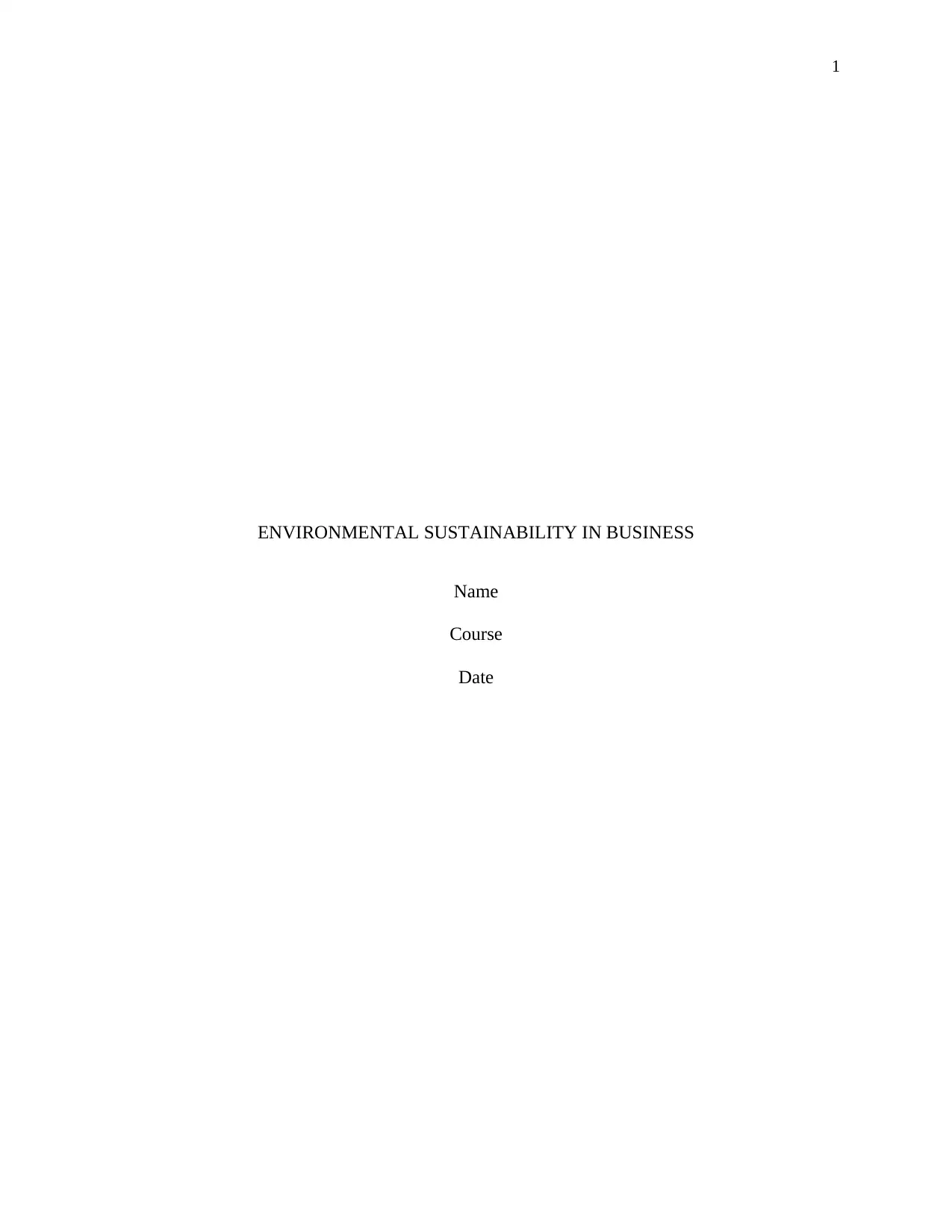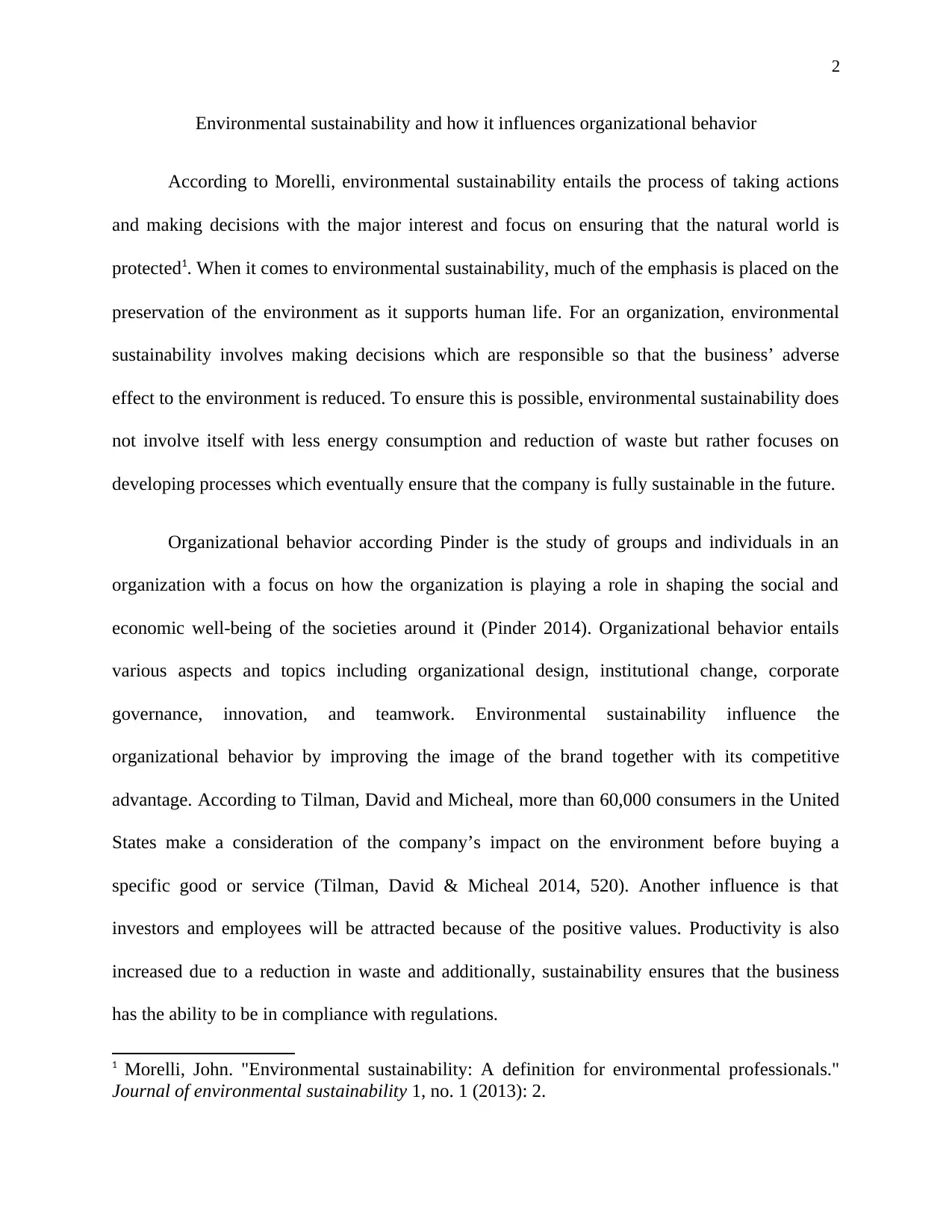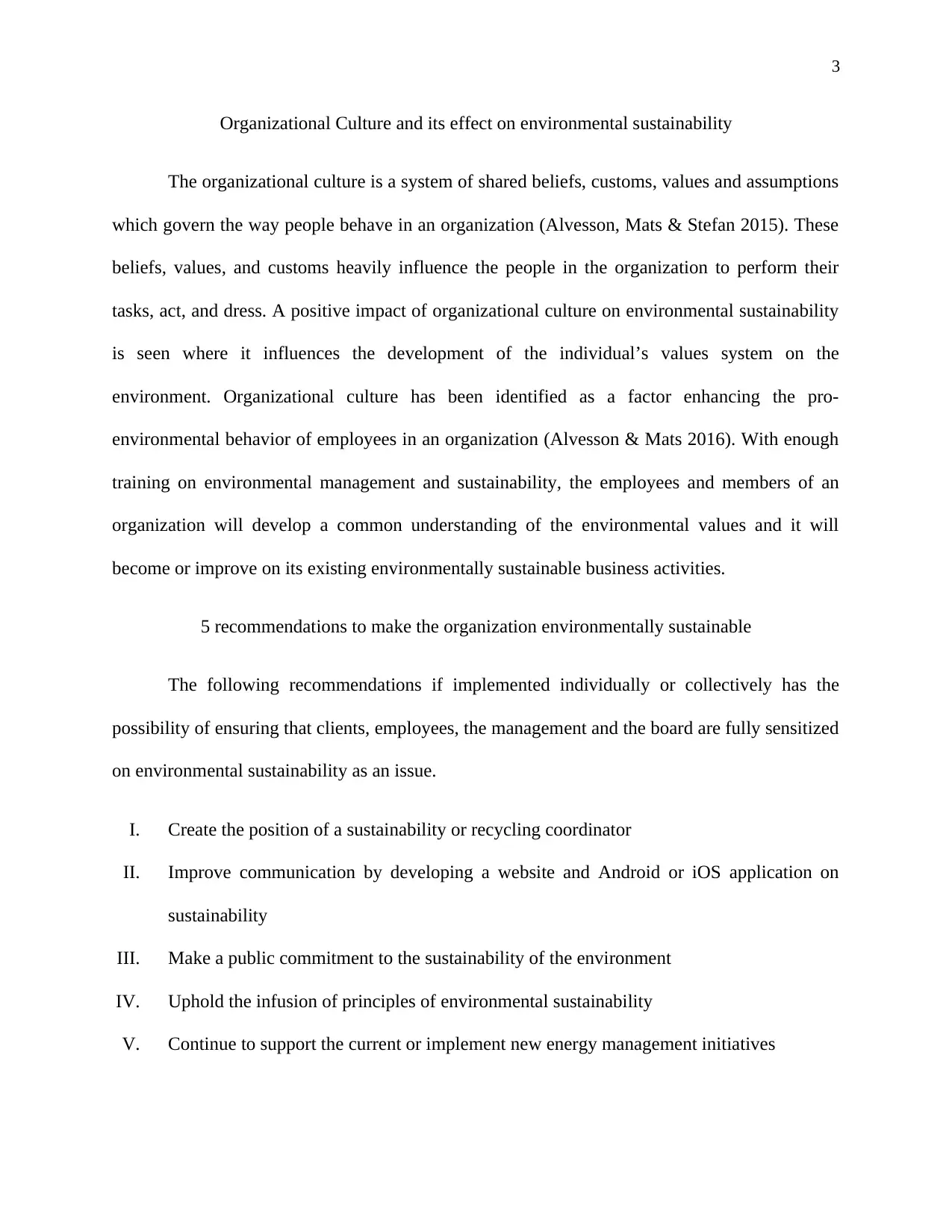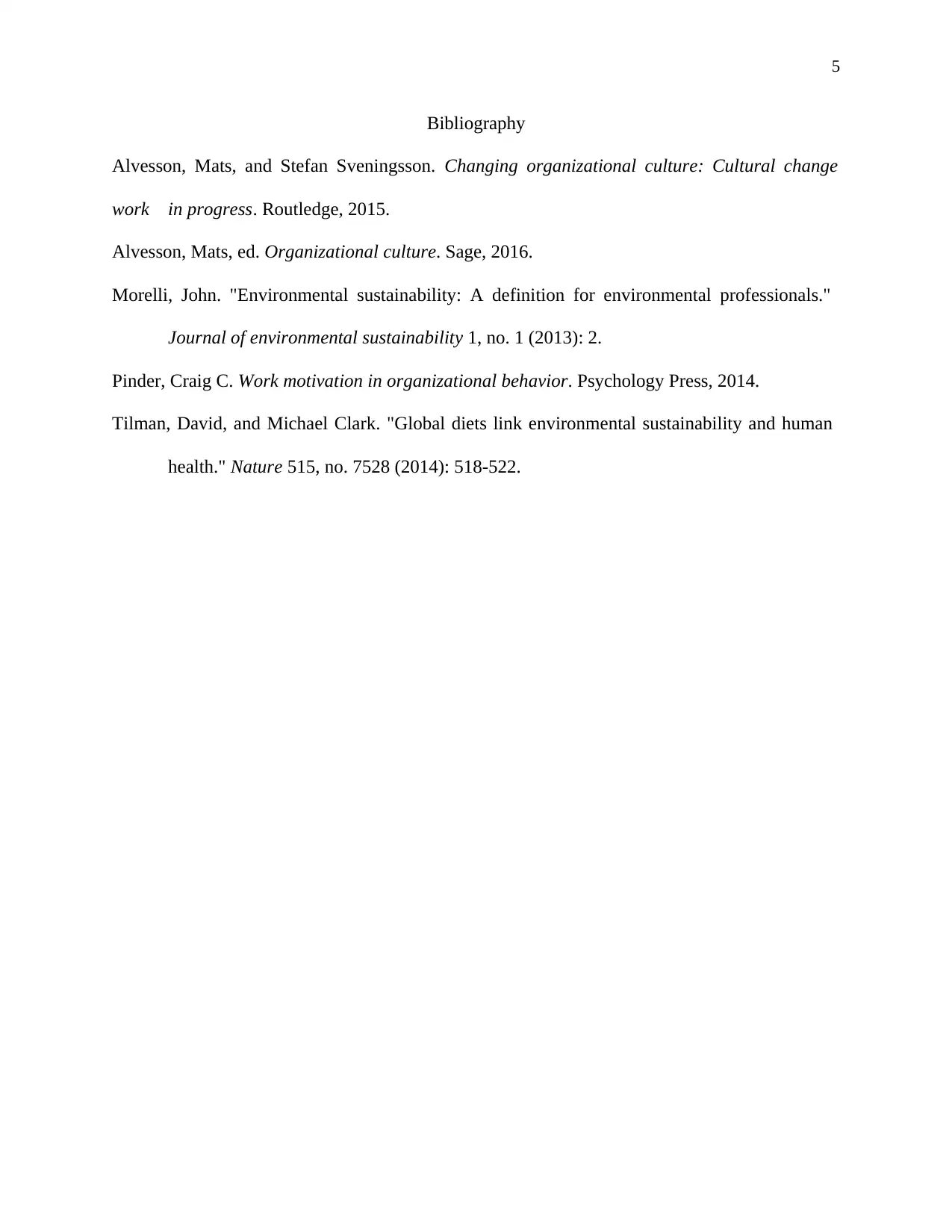Environmental Sustainability and Organizational Behavior Report
VerifiedAdded on 2020/03/16
|5
|667
|895
Report
AI Summary
This report delves into the realm of environmental sustainability within a business context, examining its influence on organizational behavior and culture. It begins by defining environmental sustainability, emphasizing its importance in preserving the natural world and guiding responsible business practices. The report explores how environmental sustainability impacts organizational behavior, including its effects on brand image, competitive advantage, employee attraction, productivity, and regulatory compliance. It further investigates the role of organizational culture in fostering pro-environmental behavior among employees. The report concludes with five actionable recommendations to enhance environmental sustainability, including the creation of a sustainability coordinator position, improved communication through digital platforms, public commitments, the integration of sustainability principles, and energy management initiatives. The report is based on the work of several researchers, including Morelli, Pinder, Tilman, and Alvesson, and presents a comprehensive overview of environmental sustainability in business and provides practical insights and recommendations.
1 out of 5











![[object Object]](/_next/static/media/star-bottom.7253800d.svg)